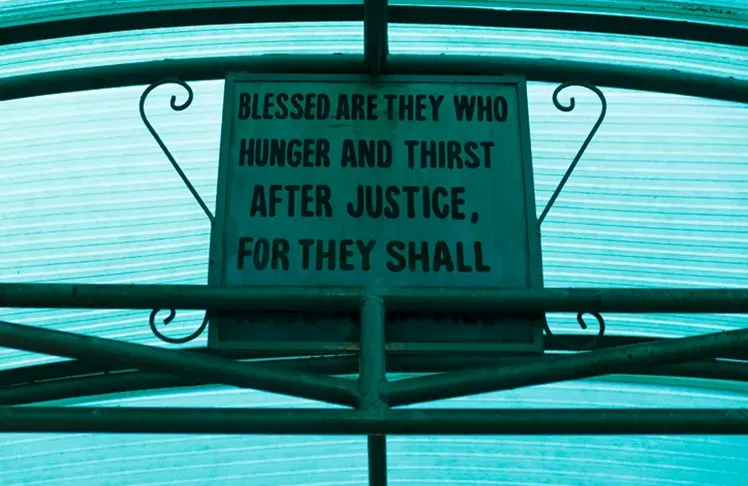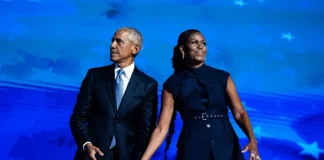
Mention the word “seminary,” and what might come to mind is a leafy green campus, anchored by a stately cathedral, with aspiring ministers poring over the Bible and gray-bearded professors teaching roomfuls of neophytes.
What typically doesn’t come to mind is a basketball program for young Black boys in hardscrabble South Seattle. Or a Phoenix-based job training and mentorship program for at-risk youth. Or an initiative using sports to teach resilience and life skills to young people in an impoverished section of Nairobi, Kenya.
Those are a handful of programs in the network of Street Psalms, a Takoma, Washington–based faith organization that partners with ministries and grassroots social service groups across the country and overseas. Its stated mission: spread the Gospel as Jesus did, by helping the poor and downtrodden in urban areas around the world.
The help ranges from helping social service workers in Anchorage use faith and spirituality to avoid burnout, training aspiring preachers in Managua, Nicaragua and training faith leaders in marginalized communities in Sydney, Australia.
“We have all these partner organizations that actually are doing on the ground, but they’re doing the work with a particular posture,” says Sarah Moore Sherry, Street Psalms’ senior fellow for applied research. “So I think when they do things like help people who are coming out of incarceration or helping people who are without permanent housing, [ministry] has a different flavor.”
In a one-on-one interview with Word In Black, Sherry talked about the Street Psalms mission, how it fights poverty and empowers young people. She also discussed how the organization serves as a training ground for those who are interested in the ministry, but not interested in a traditional seminary experience.
This conversation has been edited for length and clarity.
Word in Black: Tell me a little about how Street Psalms works.
Sarah Moore Sherry: We have all these partner organizations that actually are doing work on the ground. But they’re doing the work with a particular posture that is really different from maybe how this plays out in a lot of circles. They don’t have this kind of, ‘We’re the experts, you’re the people, [and] we need to help because you have nothing to offer,’ where they see abundance in everything.
WIB: How does it connect to spirituality? Where is the religious connection?
SMS: God at work in everything. God is already present, and the Spirit’s already alive [in social service work]. And it’s just our work to kind of discern what it is, if we can see it, and just join in that work. And our partners have that posture.
I think that the incarnational approach [of seeing the divine in human form] is the thing we believe really reflects what God in Christ had in mind. But that’s the thing that also really transforms people’s lives and helps all humankind flourish
WIB: What excites you about Street Psalms?
SMS: It really does feel like the application of what it means to be kind of spirit-led. We discern a lot and we’re willing to take the time with discernment and to be wrong and try stuff and it’s like right.
That’s part of the organization’s makeup. It’s not a mistake. It’s just the way things go and you learn and then you kind of move over in the other way. So there’s a constant co-creative quality to everything we’re doing. Now that can be frustrating too, because sometimes I long for, ‘Hey can’t we just pick a direction, set it and forget it and then we’re good?’
WIB: For an organization that has such reach, Street Psalms is low-profile. How do most people who want to work with you find you?
SMS: We don’t have a standard sort of pipeline. But people find us usually through word of mouth or they’re connected to one of the partner organizations and they kind of see what’s happening. And the people who are interested and who say, ‘Ah! That’s for me!’ they just kind of lean in.
There’s no application at the beginning or anything like that. You just start showing up and you’re welcomed into the community..
WIB: it’s wonderful to find somebody who feels as you feel, and you’re on the same journey, even though you’re in different geographical locations.
SMS: Yeah, exactly. And that ordained community comes from very different faith traditions and very different political orientations sometimes — which, here in the United States, to find a community that can hold that is really pretty special. [People] who are willing to say, ‘Yeah, we’re going to double down on this idea that there is a God in whom there is no violence, no rivalry, and that we are called to model that in everything that we do.’ As tough as that might be.
WIB: Does the Street Psalms community come together in person?
SMS: Yes. It’s the Conference on Violence and Religion. It was in Rome this year and we held a pre-conference, a Street Psalms gathering for folks who are part of our initiative. It’s great to see that it is, in fact, possible to gather people who are wildly different from different parts of the world, but who share this common call, commitment, desire to at least continue the conversation, continue to ask ourselves, ‘How is this good news for all of us, especially those who are most vulnerable, who are at the margins?
WIB: It can be challenging to discover that many people who’ve been “churched” for a lifetime find it hard to believe God’s love is specific to them.
SMS: Well, I think one of the things that we talk about, I don’t know the answer, but we talk all the time about how God not only loves us, but likes us. God is delighted with us. Maybe sometimes [God] is a little bit disappointed. But you know, looking at different scripture, I think when you think about Christ returning to the disciples and breathing on them, and saying, ‘As my father sent me, I am sending you’ — you’re it, man.
And when Christ returns — not vengeful, not angry that his best friends just deserted him and allowed this thing to happen. That the whole point of this thing is to reveal the heart of God as one that is not vengeful, not violent, doesn’t hold resentments, actually delights in us and wants us to show in all that we do this profound and grace-filled love.















